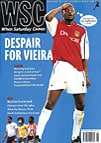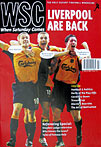 How football has evolved in the modern era
How football has evolved in the modern era
Some would say that the football watching has become a soulless experience, with passive spectators in expensive seats cowed by deafening tannoys. Yet the football fan of the 21st century gets any number of opportunities to recreate the stadium atmosphere of old, standing in a huddle cheering on their team. “Pubs have been dubbed football’s new terraces,” said the Sunday Telegraph, reporting ITV Digital’s plans for next season. These include trying to undercut Sky’s existing deals with the 40,000 pubs which pay an average of £500 per year for the right to show satellite transmissions.
